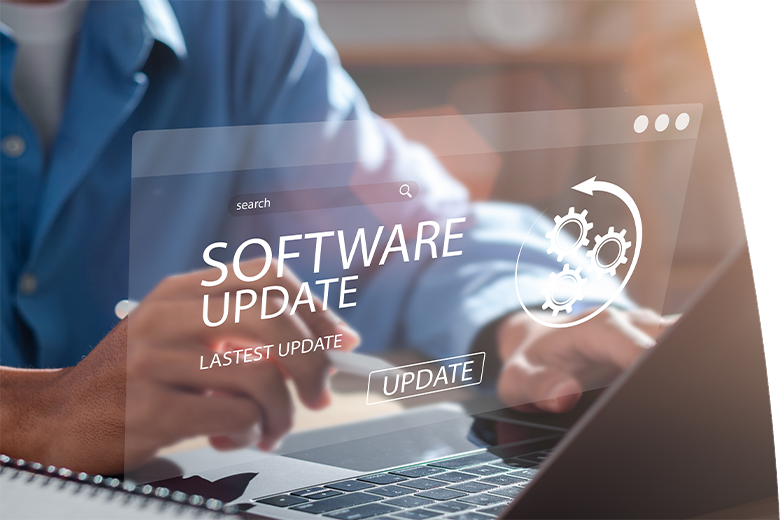Are You Familiar with the Latest Cyber Threat called LogoFAIL?

Cyber attacks threaten us all the time, and there is a new one slowly emerging every day. Do you know the latest one called 'LogoFAIL'? This attack threatens most computers and businesses of all sizes. Find out more about it in our article.
On November 29, 2023, the LogoFAIL hacking attack, which can compromise almost any computer, was first detected. It appears to be even worse than previous attacks that come from clicking on a link in a dubious email, SMS, or unapproved software, etc.. LogoFAIL can quietly worm its way into your computer's vulnerable systems and sensitive files during a very simple and trivial action - pressing the power on your computer button. During power-up, the computer does not have time to load the entire operating system with all installed antiviruses.

The attack that occurs next comes from the image parsers used in the UEFI system to retrieve the log images on the splash screens. It is because of this that it has been dubbed "LogoFAIL". It can open the door for hackers to try to install other viruses on your computer, steal sensitive data, activate spyware or cause other damage. They will then ask for a ransom to regain access, but even after paying, you can never be sure that your data will be returned to you.
Binarly is a cybersecurity company, and at the Black Hat Conference it revealed that the LogoFAIL cyberattack affects x86 and ARM computers, which includes Windows and Linux. It further targets software from major UEFI/BIOS software vendors. However, hundreds more consumer and enterprise devices from a variety of companies, including Intel, Acer and Lenovo, are potentially vulnerable. Don't worry, vendors are addressing the issue and advising users to keep an eye out for security updates. At the same time, it should be noted that planting malicious code in a computer's bootloader or in the BIOS/UEFI firmware itself is not a new technique. Referred to as rootkits or bootkits, they offer attackers an advantage because their code executes before the operating system boots, allowing them to escape security systems.
If you still think that no one cares about your sensitive data, you are, unfortunately, mistaken. Hackers are interested in everyone, whether you have a small, medium or large enterprise. In fact, statistics show that small businesses have the highest number of hacking attacks and data leaks. This may be due to the fact that many businesses have outdated software and are using un-updated antivirus systems. Admit it, how often do you ignore updating your computer or antivirus? It is their updates that supply them with important software fixes to prevent cyber attacks.

Our advice is to do regular security checks to avoid cyber attacks. Keep your software and operating system up-to-date and you'll do best if you regularly reset your passwords.
Don't forget to subscribe to our newsletter to get more tips and advice from different areas of the business environment.



